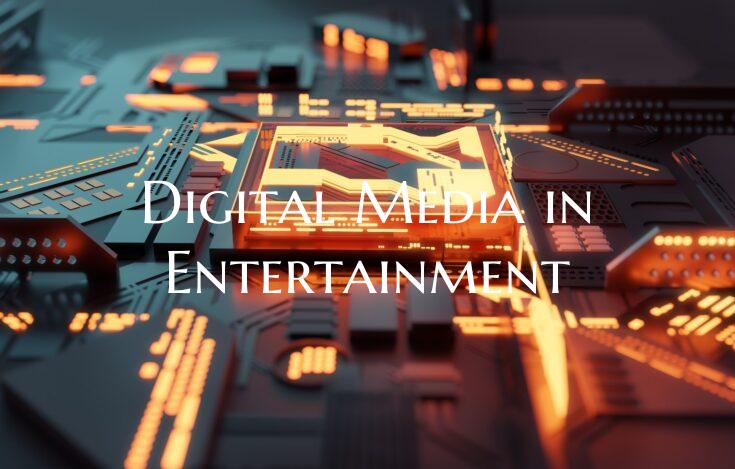Digital Media in Entertainment
In today's modern world, digital media has revolutionized the entertainment industry in profound ways, shaping the way we consume and interact with content. From streaming services to social media platforms and video games, digital media has redefined how we engage with entertainment across various mediums. Let's delve into the impact and significance of digital media in entertainment.
1. Streaming Revolution: One of the most significant changes brought about by digital media is the rise of streaming services like Netflix, Hulu, and Amazon Prime. These platforms have disrupted traditional television and movie distribution models, allowing consumers to access a vast library of content at their convenience. The popularity of streaming services has led to a surge in original programming, giving rise to a new era of content creation.
2. Social Media Integration: Social media has become a powerful tool for entertainment companies to engage with audiences and promote their content. Platforms like Instagram, Twitter, and TikTok enable fans to interact with their favorite celebrities, participate in online communities, and stay connected with the latest trends in the entertainment industry. Social media has also become a valuable marketing tool for promoting movies, TV shows, and music.
3. Virtual Reality and Augmented Reality: Digital media technologies like virtual reality (VR) and augmented reality (AR) have opened up new possibilities for immersive entertainment experiences. VR allows users to enter virtual worlds and interact with content in ways that were previously unimaginable, while AR overlays digital elements onto the real world, enhancing live events and gaming experiences. These technologies are transforming the way we engage with entertainment, blurring the lines between the digital and physical realms.
4. Gaming Industry: The gaming industry has been at the forefront of digital media innovation, pushing the boundaries of interactive entertainment. Video games have evolved from simple pixelated graphics to immersive, cinematic experiences with lifelike graphics and complex storytelling. The advent of online gaming has also fostered a sense of community among players, enabling collaborative and competitive experiences on a global scale.
5. Content Creation and Monetization: Digital media has democratized content creation, allowing aspiring artists, filmmakers, and musicians to share their work with a global audience. Platforms like YouTube, Twitch, and SoundCloud have enabled creators to monetize their content through advertising, sponsorships, and direct fan support. This shift has empowered independent creators to build their brands and cultivate dedicated fan bases without the need for traditional gatekeepers.
In conclusion, digital media has transformed the entertainment industry, providing new avenues for content creation, distribution, and engagement. As technology continues to evolve, the boundaries between digital and traditional media will continue to blur, shaping the future of entertainment in ways we have yet to imagine. Embracing the possibilities of digital media is essential for staying relevant in an ever-changing and increasingly interconnected entertainment landscape.

